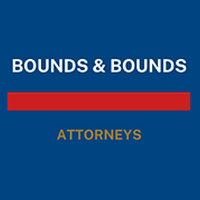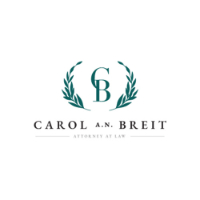 Manquin Felony Lawyers, Virginia
Manquin Felony Lawyers, Virginia
Sponsored Law Firm
-
 x
x

Click For More Info:
-
Tillotson & Martin, LLP
DWI/DUI Defense throughout the Entire Commonwealth of Virginia » view mapCriminal Defense Virginia’s Premier DWI/DUI Defense Firm
Michael C. Tillotson is the one to choose when it comes to DWI/DUI defense in Virginia.
800-878-1431
Not enough matches for Manquin Felony lawyer.
Below are all Manquin Criminal lawyers.
Sponsored Lawyers
1-10 of 38 matches
Criminal, Divorce & Family Law, Traffic
Daniel J. Bounds founded Bounds and Bounds, PLLC in 2022 and serves as the Managing Partner of the Firm. Before practicing law, Daniel accumulated his experience through various leadership roles in both the private and public sectors. Graduating from Virginia Tech with a bachelor’s degree in History, Daniel commissioned as an Officer in the United States Marine Corps. Daniel was promoted to Captain in 2017 and served from 2012 to 2020 in various active and reserve duty roles as a combat engineer officer. Daniel’s time in the reserves allowed him to gain valuable business experience through holding leadership roles in the private sector: from operations manager at LKQ Corporation, a Fortune 500 company; to running the NATO conference center at Alion Science and Technology. Daniel earned his law degree from Louisiana State University’s Paul M. Hebert Law Center while also attending George Mason University’s Law School for his final three semesters. During law school, Daniel held various legal positions, serving as a clerk to Judge Jeffrey Parker in Virginia’s 20th Judicial Circuit and working with the private firm of Turbitt, Leach, & Crum in Fairfax, Virginia. After law school, Daniel gained valuable trial experience as an Associate Attorney with Howard, Clark & Howard in Warrenton, Virginia. At Howard, Clark & Howard, Daniel primarily worked as a trial attorney, serving clients in civil, domestic, and criminal matters. While gaining trial experience, Daniel simultaneously grew his business law practice, serving a wide range of businesses, including those focusing on Virginia’s cannabis market. Today, Daniel’s diverse practice is enhanced by his past business experience, trial experience, and his time in numerous military and civilian leadership positions. Daniel also serves as General Counsel for AgriTech LLC, a tech company focusing on merging technology and agriculture to ensure a sustainable future.
(more)Criminal, DUI-DWI, Traffic, Divorce & Family Law
Jason Moore is a life long resident of Central Virginia. He graduated from Uva where he majored in History, and worked at the school paper. He took a year off between undergraduate and law school to work as a legislative assistant at the Virginia General Assembly. He then attended T.C. Williams School of Law at the University of Richmond. As part of his studies at Richmond, he did a semester aboard studying at Emmanuel College at Cambridge University in Great Britain. For the last twenty-one years, Jason has practiced criminal law from the Carolina line to north of Richmond and from New Kent to Nelson. He has worked on almost every type of criminal case imaginable from traffic tickets, reckless driving, DUI or driving revoked to larceny, embezzlement, breaking and entering to various violent sex offenses, to murder. He has tried 30 jury trials including two murder jury trials. Jason is admitted to practice in all Virginia courts and has argued cases before the Virginia Supreme Court and Virginia Court of Appeals. He is also admitted the the US District Court, the 4th Circuit Court of Appeals, the Bankruptcy bar and has conducted hearing before Social Security Administration Judges. The results of some of Jason’s cases have been mentioned in Virginia Lawyer’s Weekly, and he has been interviewed by all three local TV stations, the Richmond Times Dispatch and WRVA regarding various cases he has tried.
(more)Criminal, Traffic, DUI-DWI
If you have to go to court, put experience on your side with Joe McGrath Attorney at Law. Virginia Traffic Court & DUI Attorney. Joe McGrath has been defending the residents of Richmond, Petersburg, and several surrounding counties, since 1980 and is a member of many groups such as the National Association of Criminal Defense Attorneys, The Virginia Association of Criminal Defense Attorneys, and most importantly, the National College for D.U.I. Defense. With his many years of experience, Joe McGrath understands that for someone who is stepping into court it can put you at a disadvantage without someone who knows the system well. For someone whose job, family, and life depend on a license, it can be scary to fight alone. Joe McGrath Attorney at Law concentrates his practice on all traffic criminal defenses, DUI & DWI charges, license reinstatement, personal injury, and other legal services.
(more)Family Law, Divorce, Mediation, Criminal, Employment
Carol A. N. Breit, Attorney at Law, in Richmond, Virginia, is dedicated to offering clients personalized attention, carefully evaluating each case to find the best possible solution. With years of experience, she provides effective representation in family law, criminal defense, personal injury, and employment law matters. Carol is skilled in both negotiation and litigation, using her expertise to resolve disputes efficiently while being ready to fight for her clients in court when necessary. In family law, Carol guides clients through issues such as divorce, custody, visitation, child support, and spousal support. As a criminal defense attorney, she defends clients against felony and misdemeanor charges, including DUIs and drug offenses. Carol also represents individuals in personal injury cases, helping them recover compensation for injuries, medical expenses, and lost wages, as well as wrongful death actions. Having started her career as a prosecutor, Carol brings invaluable insight into the litigation process. This experience allows her to protect clients’ rights while offering strong, strategic advocacy in all legal matters. Contact Carol today to schedule a consultation and discuss how she can assist you with your case.
(more)


 Michael Tillotson Newport News, VA
Michael Tillotson Newport News, VA AboutTillotson & Martin, LLP
AboutTillotson & Martin, LLP Practice AreasExpertise
Practice AreasExpertise




